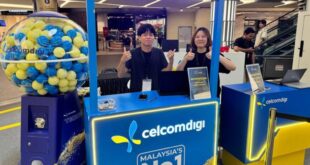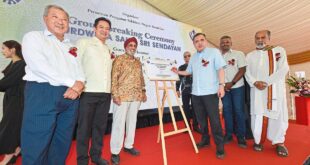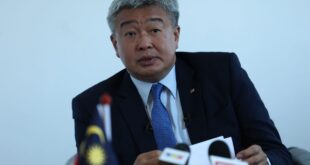THE second phase of the Extended Producer Responsibility (EPR) initiatives on waste management has kicked off in Langkawi.
The initiative is a collaboration between the Malaysian Recycling Alliance (Marea) and the Local Government Development Ministry.
Marea chief executive officer Roberto Benetello said the launch of the second phase featured interactive activities aimed at fostering community engagement and raising awareness on proper waste management.
“This included colouring and drawing competitions for children and teenagers, as well as Separation at Source-centred competitions for adults, which provided a hands-on opportunity for attendees to practise waste segregation techniques with support from trainers,” he said in a statement.
Benetello said Marea’s contribution will facilitate the collection of recyclables from neighbourhoods with difficult access.
He said a special collection tricycle will be able to access narrow rural alleys and bring the recyclables to the main road for collection by larger trucks from their partner E-Idaman.
Established in August 2022, the pilot project aims to foster effective collaboration among government stakeholders, producers, manufacturers, and other key stakeholders within the value chain who share a common vision of supporting the circular economy approach.
The pilot project comprises three phases: understanding, intervention and scale-up.
Currently in the second phase, the project is focused on intervention to improve solid waste management and recycling activities in Langkawi, with implementation across four residential areas, specifically Taman Sri Aman, Kampung Padang Putih, Simfoni Beliza Apartment and Taman Dahlia, covering over 1,300 households.
This entails consumer education and public awareness engagements, as well as recycling activities within the communities.
The pilot project in Langkawi builds upon the ministry’s ongoing drive to develop an effective EPR policy in order to reduce the cost borne by the government for solid waste management.
The successful implementation of EPR framework in Malaysia will see producers taking greater responsibility for the treatment and disposal of post-consumer products, either through self-undertaking or financial contribution.
 BeritaKini.biz Berita Viral Terkini di Malaysia
BeritaKini.biz Berita Viral Terkini di Malaysia





